Your IRA, 401(k), 403(b), or other Qualified Retirement Plan can provide a tax-smart way to make an impact on Bristol Community College Foundation either now or after the end of your lifetime. The Qualified Charitable Distribution or QCD (sometimes called an “IRA Charitable Rollover”) is a great way to make a tax-free gift now to Bristol Community College Foundation and satisfy your Required Minimum Distribution (RMD) too.
A gift of retirement plan assets could be right for you if:
- You have an IRA or other Qualified Retirement Plan such as a 401(k) or 403(b).
- You do not expect to need all of your retirement plan assets during your lifetime.
- You have other assets, such as securities and real estate, that you want to pass to heirs.
- You would like to make a charitable bequest to Bristol.
IRAs and Qualified Retirement Plans
Retirement plan assets are a major source of wealth for many households. For example, you may have hundreds of thousands of dollars invested in your IRA, 401(k), 403(b), or other qualified retirement plan. These plans do not pay tax on the income they earn, or the capital gain realized within the account. This allows the assets to grow faster than if held and invested in these qualified plans.
The primary purpose of your retirement plan is to provide you with income during your retirement, but it can also be an excellent source of funds for making charitable gifts during your life and when your plan ends.
Withdrawals are Taxed as Income
With the exception of the Roth IRA, the money used to fund a qualified retirement plan, such as a traditional IRA, 401(k), or 403(b), has never been taxed. Also, earnings that occur within a qualified retirement plan are not taxed. As a consequence, withdrawals from any of these plans (except for the Roth IRA) are taxed as ordinary income. Your federal income tax alone on a withdrawal from one of these plans could be as high as 37%.
Withdrawals are Required Once You Reach 73 Years Old
You must start taking withdrawals from your qualified retirement plan once you reach 73 years old. The amount you must withdraw each year is a percentage of the value of your retirement plan as of the last day of the previous year. The percentage starts below 4% for someone who is taking their first “required minimum distribution” and increases with age according to a schedule published by the IRS.
Taxes on Remaining Retirement Assets can be Very High
Your family members and other heirs will have to pay income tax on any distributions they receive from your retirement plan after you are gone. In addition, your qualified retirement plan is included in your estate, so if your estate is large enough to owe estate tax, your plan may increase the estate taxes you owe.
Federal income tax alone can be 37%. When you add federal income tax and estate tax together, they can total 62% or more. In states that assess their own taxes on estates, the total taxes on retirement plan assets paid to heirs can be over 62%.
Give Retirement Plan Assets to Bristol Community College Foundation and Save Taxes
In contrast to your retirement plan assets, your estate will not owe income tax on most of its other assets in addition to estate taxes that may be due. As a result, your estate and heirs will pay lower taxes if you pass your less heavily taxed assets to your heirs, and give your retirement plan assets to charity. Paying lower taxes will mean that more assets will reach your heirs. How much more will depend on the size of your estate, where you live, the other assets you own, and the type of gift you make.

